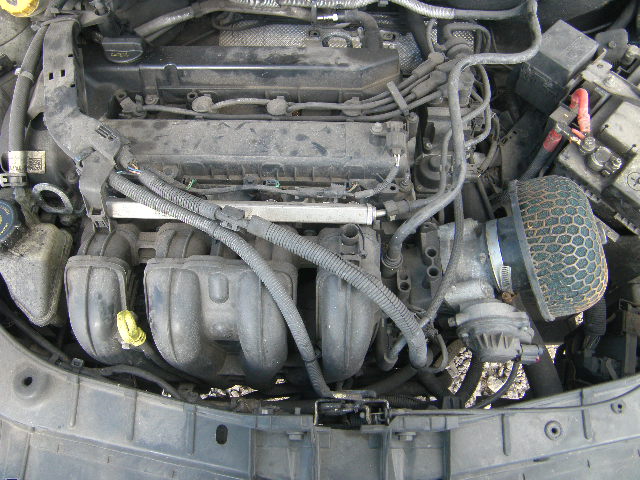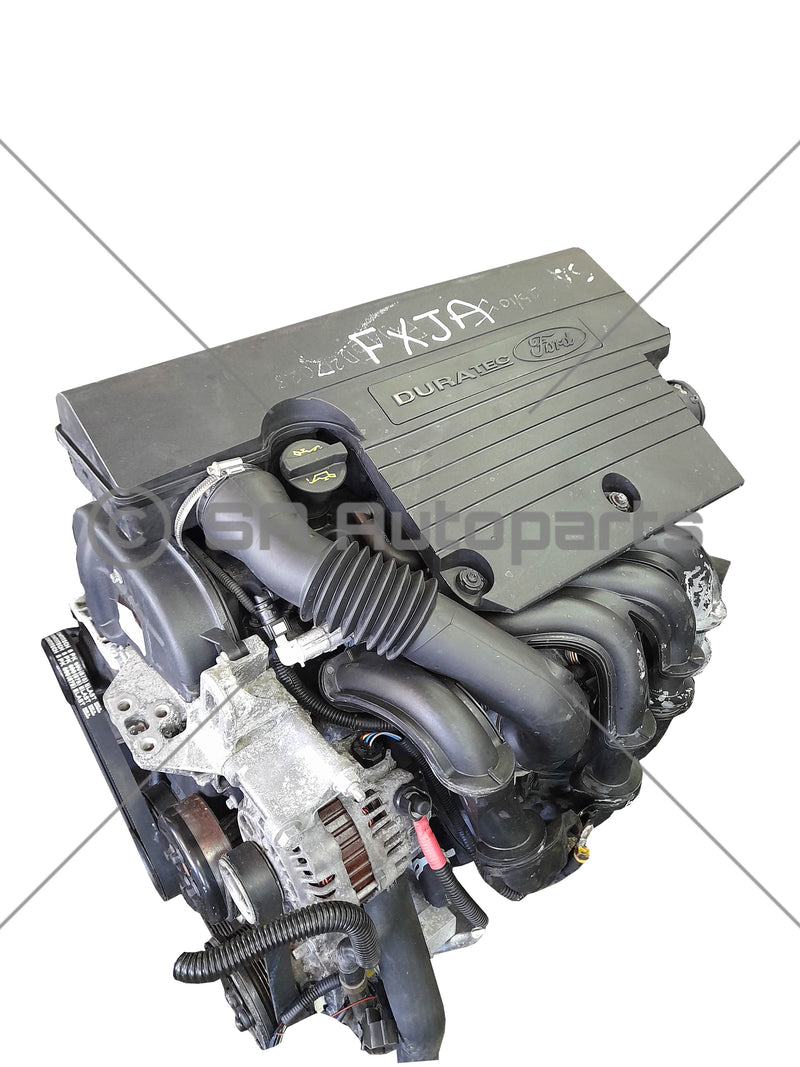Save Money on Repairs with Regular Ford Fiesta Engine Inspections
Wiki Article
The Future of Engines: Advancements Driving Lasting Power Solutions
As the auto market browses the crucial change towards sustainability, the future of engines is significantly defined by groundbreaking developments. Electric engine innovations, alongside appealing growths in hydrogen gas cells and biofuels, are improving the landscape of power remedies. The development of hybrid systems additionally complicates this development, offering both possibilities and obstacles to decrease exhausts efficiently. Paired with the combination of expert system in engine style, these technological strides raise crucial concerns regarding their lasting practicality and effect on standard paradigms. What might this indicate for the market and customers alike?Electric Engine Advancement
The development of electric engine growths signifies a critical change in the aerospace and vehicle markets, driven by the urgent requirement for sustainable choices to fossil gas. This shift is identified by considerable innovations in battery innovation, power electronics, and electric motor layout, which collectively improve the effectiveness and efficiency of electric engines.Current technologies have actually resulted in the production of lighter, extra energy-dense batteries, such as lithium-silicon and solid-state batteries, which assure longer arrays and much shorter charging times. Additionally, improvements in electric motor effectiveness, such as making use of permanent magnets and progressed cooling systems, allow electric engines to run properly under differing problems. These improvements not just improve vehicle efficiency yet likewise add to a reduction in total power intake.
Furthermore, the integration of advanced software application algorithms has actually enhanced power monitoring in electrical cars, enabling regenerative braking and anticipating charging techniques. As producers significantly accept electric propulsion, the aerospace and auto sectors are observing a standard shift in the direction of greener technologies. This evolution not only fulfills governing needs however also straightens with consumer preferences for environmentally friendly transport services, strengthening electric engines as a foundation of future sustainable mobility.
Innovations in Biofuels
As the automobile and aerospace markets increasingly focus on lasting power sources, improvements in biofuels become a corresponding service to electrical engines. Biofuels, derived from natural materials such as crops, waste, and algae, provide a cutting-edge avenue for minimizing greenhouse gas emissions and reliance on fossil gas.Current research has concentrated on improving the efficiency and sustainability of biofuel manufacturing. Second-generation biofuels use non-food feedstocks, reducing competitors with food supply and reducing environmental impact. Innovations in synthetic biology have enabled the design of microbes to create biofuels a lot more efficiently, leading to greater returns and reduced production expenses.
Furthermore, the development of drop-in biofuels permits seamless combination right into existing facilities, enabling a smoother change for markets commonly reliant on nonrenewable fuel sources. ford fiesta engine. These gas can be made use of in present engines without alterations, promoting their fostering throughout various sectors
Investments in biofuel technology, along with helpful plans, are necessary to drive advancement and scalability. As the global area looks for to fight environment change, biofuels offer a pragmatic, prompt option that straightens with the overarching objective of sustainability in transportation and air travel.
Hydrogen Gas Cell Modern Technology
A growing number of firms and scientists are discovering hydrogen gas cell technology as a sensible choice to standard source of power in transportation and energy systems. This technology transforms chemical energy from hydrogen right into power with an electrochemical reaction, with water as the only by-product, making it an eco-friendly alternative.The core of hydrogen gas cells is the fuel cell stack, where hydrogen particles are split into electrons and protons. The flow of electrons produces electrical power, while protons relocate with a membrane to combine with oxygen from the air, developing water. This procedure results in high efficiency and reduced discharges, positioning hydrogen gas cells as an essential gamer in the transition to sustainable energy.
Considerable improvements have been made in find more information improving the resilience and efficiency of fuel cells, along with minimizing expenses with cutting-edge manufacturing techniques. Additionally, the advancement of hydrogen manufacturing approaches, such as electrolysis powered by renewable power sources, improves the sustainability of the total system. As facilities for hydrogen refueling expands and production techniques come to be much more reliable, hydrogen fuel cell innovation holds wonderful promise for decarbonizing various sectors, including durable transportation and fixed power generation.
Crossbreed Systems and Their Effect
Crossbreed systems stand for a substantial development in lasting engine innovation, merging traditional inner combustion engines with electrical propulsion to maximize energy effectiveness and minimize exhausts (ford fiesta engine). This twin technique enables cars to utilize both source of power, making it possible for better versatility in energy intake and decreasing reliance on nonrenewable fuel sources

In enhancement to environmental advantages, hybrid systems use customers a feasible change in the direction of completely electrical cars. They minimize range anxiousness by incorporating the benefit of gasoline with the advantages of electric propulsion, making them an appealing alternative for a bigger audience.
The Role of AI in Engine Design
Leveraging sophisticated formulas and artificial intelligence strategies, the auto market is significantly integrating expert system (AI) right into engine design procedures. AI improves the efficiency and effectiveness of design by examining large datasets to determine ideal configurations and efficiency criteria. This capacity allows engineers to replicate different operating conditions and anticipate engine behavior under several circumstances, substantially lowering the moment and price connected with conventional prototyping approaches.Furthermore, AI assists in the growth of innovative materials and burning procedures customized for sustainability. By enhancing fuel efficiency and decreasing emissions, AI-driven designs align with global efforts aimed at minimizing the carbon impact of vehicle engines. Artificial intelligence algorithms can likewise anticipate maintenance requirements, resulting in enhanced dependability and longevity of engine components.
In Addition, AI is critical in the integration of electrification technologies, such as crossbreed systems, where it can enhance battery management and energy healing processes. As the sector moves towards more lasting power options, the function of AI in engine design ends up being progressively important, driving innovation and boosting the performance of future engines. Eventually, the cooperation between AI and engine layout advertises a new age of smarter, cleaner, and a lot more effective automotive modern technologies.

Conclusion
In final thought, the future of engines is being formed by a merging of cutting-edge modern technologies that prioritize useful link sustainability. Electric engine improvements, biofuel advancements, hydrogen gas cells, and crossbreed systems jointly add to a significant reduction in discharges and environmental effect. Additionally, the assimilation of synthetic intelligence in engine layout boosts performance and efficiency. These transformative solutions highlight a commitment to creating a cleaner, much more sustainable auto landscape, eventually go to my blog benefiting both culture and the setting.Electric engine improvements, together with promising developments in hydrogen gas cells and biofuels, are improving the landscape of power options. Furthermore, enhancements in electric motor performance, such as the usage of irreversible magnets and progressed cooling systems, enable electrical engines to run efficiently under differing problems. By enhancing gas effectiveness and reducing emissions, AI-driven designs straighten with global efforts intended at reducing the carbon footprint of automobile engines. As the sector relocates towards even more lasting power options, the duty of AI in engine design becomes significantly crucial, driving technology and improving the efficiency of future engines. Electric engine innovations, biofuel growths, hydrogen fuel cells, and hybrid systems jointly contribute to a considerable reduction in emissions and ecological influence.
Report this wiki page